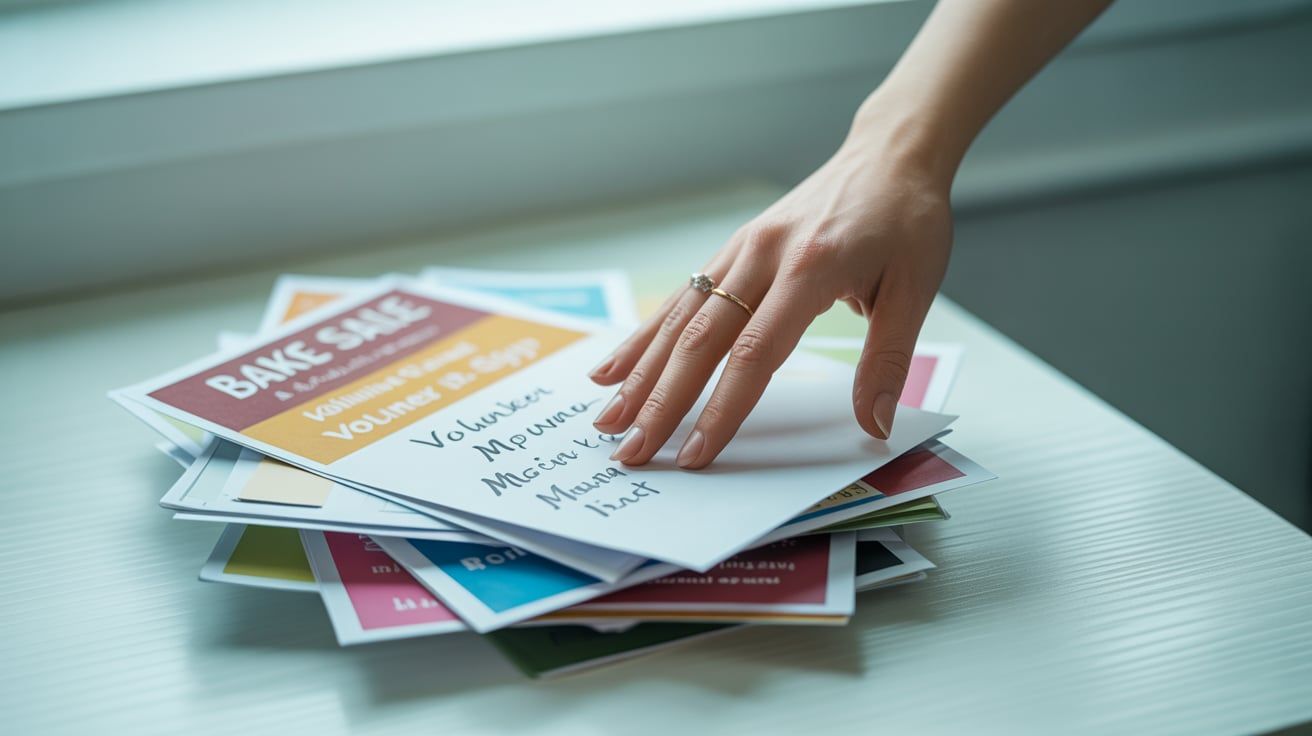
The Guilt Trip: Why Saying No Feels So Hard
Ever found yourself agreeing to something you really didn’t want to do, only to immediately regret it? Maybe it was volunteering for yet another school bake sale, helping a friend move (again!), or taking on an extra project at work when you’re already swamped. We’ve all been there. That sinking feeling in your stomach, the internal battle between wanting to please and needing to protect your own time and energy – it’s the dreaded guilt trip. But why does saying “no” feel so incredibly difficult, even when it’s the right thing for us?
The answer lies in a complex interplay of factors. From a young age, many of us are conditioned to be agreeable, to prioritize the needs of others, and to avoid conflict. We’re taught that saying “yes” is polite, helpful, and strengthens our relationships. Saying “no,” on the other hand, can feel selfish, rude, or like we’re letting someone down. This ingrained programming, combined with our innate desire for connection and approval, creates a powerful internal pressure that makes saying “no” a monumental task. Understanding these underlying reasons is the first step towards breaking free from the guilt and reclaiming control of your time and your life.
The Power of “No”: Reclaiming Your Time and Energy
Learning to say “no” isn’t about becoming a recluse or shutting yourself off from the world. It’s about setting healthy boundaries, prioritizing your well-being, and creating a lifestyle that aligns with your values. Think of it as an act of self-care, a way to protect your precious time and energy so you can focus on the things that truly matter to you. When you consistently say “yes” to everything, you’re essentially saying “no” to yourself and your own needs. This can lead to burnout, resentment, and a feeling of being overwhelmed and unfulfilled.
Imagine the possibilities that open up when you start saying “no” to the things that drain you. You’ll have more time for your hobbies, your family, your personal growth, and simply relaxing and recharging. You’ll be able to say “yes” to the opportunities that truly excite you, the ones that align with your passions and goals. Learning to say “no” is an investment in your overall well-being and a crucial step towards creating a more balanced and fulfilling life. It’s about taking control of your schedule and shaping your lifestyle to reflect your priorities.
Mindfulness: The Key to Guilt-Free Decisions
Before you can confidently say “no,” it’s essential to cultivate mindfulness. Mindfulness is the practice of paying attention to the present moment without judgment. It allows you to become more aware of your thoughts, feelings, and bodily sensations, giving you the space to respond thoughtfully rather than react impulsively. When faced with a request, take a moment to pause and tune into your inner experience. Ask yourself: “How does this request make me feel? Do I genuinely want to do this, or am I saying ‘yes’ out of obligation or fear?”
By practicing mindfulness, you can identify the underlying reasons for your guilt. Are you afraid of disappointing someone? Do you worry about being perceived as selfish? Once you understand the root of your guilt, you can begin to challenge those beliefs and develop a more compassionate and realistic perspective. Remember, it’s okay to prioritize your own needs. It’s okay to say “no” without feeling the need to justify or apologize. Mindfulness provides the clarity and self-awareness needed to make decisions that are aligned with your well-being and values.
Crafting Your “No”: Scripts That Actually Work
Now for the practical part: crafting your “no.” The key is to be clear, concise, and respectful, while also setting a firm boundary. You don’t need to offer lengthy explanations or elaborate excuses. A simple and direct “no” is often the most effective. However, if you feel the need to soften the blow, here are a few scripts you can adapt to different situations:
Scenario 1: A friend asks for a favor you can’t fulfill. “Thank you so much for thinking of me, but I’m not able to help with that right now. I’m really swamped with other commitments.” Scenario 2: A colleague asks you to take on an extra project. “I appreciate you asking, but my plate is already full at the moment. I wouldn’t be able to give it the attention it deserves.” Scenario 3: You’re invited to an event you don’t want to attend. “That sounds lovely, but I won’t be able to make it. Thanks for the invitation!” Remember to deliver these scripts with a calm and confident tone. Avoid hedging or apologizing excessively, as this can undermine your message.
The Art of the “Soft No”: Alternatives and Compromises
Sometimes, a direct “no” might feel too harsh, especially in close relationships. In these situations, consider using a “soft no” – a way to decline the request while still maintaining connection and goodwill. This could involve offering an alternative solution, suggesting someone else who might be able to help, or proposing a compromise.
For example, if a friend asks you to help them move on a Saturday, you could say, “I’m not available on Saturday, but I could help you pack some boxes during the week.” Or, if a colleague asks you to take on a task you don’t have time for, you could say, “I can’t take that on right now, but I can point you to some resources that might be helpful.” The “soft no” allows you to set boundaries while still being supportive and considerate. It’s a valuable tool for navigating challenging situations and maintaining healthy relationships.
Dealing with Pushback: Standing Your Ground
Even with the best scripts and intentions, you might encounter pushback when you say “no.” Some people may try to guilt-trip you, pressure you, or even get angry. It’s important to be prepared for this and to stand your ground. Remember, you have the right to say “no” without feeling obligated to justify or defend your decision. Repeat your boundary calmly and firmly, without getting drawn into an argument.
For example, if someone says, “But I really need your help! I don’t know what I’ll do without you,” you could respond with, “I understand that you’re in a tough spot, but I’m still not able to help at this time. Perhaps you could try reaching out to [another person] or exploring [alternative solution].” Avoid getting defensive or apologetic. Simply reiterate your boundary and disengage from the conversation. Remember, you’re not responsible for other people’s reactions. Your priority is to protect your own well-being and maintain your boundaries.
Building Healthy Habits: Saying “No” as a Lifestyle
Saying “no” isn’t just a one-time skill; it’s a habit that needs to be cultivated over time. The more you practice setting boundaries and prioritizing your own needs, the easier it will become. Start small, by saying “no” to minor requests that you don’t feel comfortable with. As you gain confidence, you can gradually tackle more challenging situations. Remember to celebrate your successes and acknowledge your progress. Each time you say “no” without feeling guilty, you’re reinforcing a healthy habit and strengthening your sense of self.
Integrating the ability to say no into your lifestyle is a powerful act of self-respect. It allows you to create a life that is aligned with your values, your priorities, and your well-being. It frees you from the burden of overcommitment and allows you to focus on the things that truly matter to you. This shift in mindset can have a profound impact on your relationships, your career, and your overall happiness. It’s about taking control of your life and living it on your own terms.
Nurturing Relationships: Saying “No” Without Damaging Bonds
One of the biggest fears associated with saying “no” is the fear of damaging relationships. We worry that people will be angry, disappointed, or think less of us. However, healthy relationships are built on mutual respect and understanding. True friends and loved ones will respect your boundaries and understand that you have the right to say “no.” In fact, setting healthy boundaries can actually strengthen your relationships by fostering honesty, trust, and mutual respect.
When you say “no” in a respectful and compassionate way, you’re demonstrating that you value the relationship but also value your own well-being. This can lead to more open and honest communication, which is essential for healthy relationships. Remember, it’s okay to prioritize your own needs. It’s okay to say “no” without feeling the need to apologize or justify your decision. By setting healthy boundaries, you’re creating a foundation for stronger, more fulfilling relationships that are built on mutual respect and understanding.
Conclusion: Embrace the Freedom of “No”
Learning to say “no” without feeling guilty is a journey, not a destination. It requires self-awareness, mindfulness, and a willingness to challenge ingrained beliefs and habits. But the rewards are immeasurable. By reclaiming your time and energy, you’ll be able to focus on the things that truly matter to you, cultivate stronger relationships, and create a lifestyle that aligns with your values. The freedom that comes with saying “no” is empowering and transformative. It allows you to live a more authentic, fulfilling, and joyful life.
So, take a deep breath, embrace the power of “no,” and start setting healthy boundaries today. Practice the scripts we’ve discussed, cultivate mindfulness, and remember that you have the right to prioritize your own well-being. The world won’t fall apart if you say “no.” In fact, it might just become a little bit brighter, a little bit more balanced, and a whole lot more aligned with the amazing person you are. What request will you confidently decline this week, knowing you’re honoring your own needs and building a more fulfilling life? Start small, be brave, and watch the positive changes unfold.


